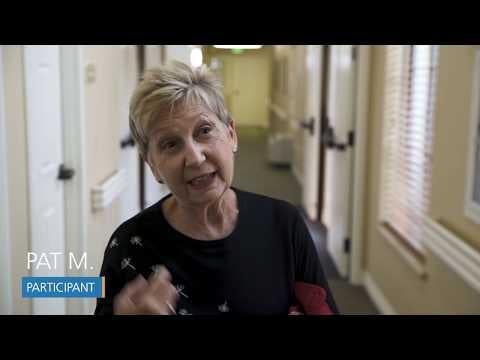Dementia Support
Newly Diagnosed
First define dementia in a way that is understandable. Eskaton defines dementia as a shift in the way a person experiences the world. The best education is to understand that although your brain will experience changes in executive function, attention, memory, perception, motor skills and language there will also remain many strengths. Your brain is adaptive and will create new ways of communicating, growing and learning. There are support groups available for both persons’ living with dementia and family care partners that discuss the lived experienced and ways to continue living meaningful lives. Join an online community to connect with others living with dementia and exchange ideas and form meaningful relationships. If you are looking for an early-stage support group locally contact Judy Filippoff, MSW, Early Stage Program Coordinator at the Alzheimer’s Association at 800-272-3900. For a list of support groups visit the Alzheimer’s Association support group and education calendar. Remember, you are not alone in your diagnosis. Watch “A Message From People Living With Alzheimer’s” video.
Caregiver Support, Respite Care and Self Care
Supporting the emotional and physical needs of another person can be both exhausting and extremely rewarding. If you are an adult child with parents in need of support, it is a way to give back the love and nurturing they provided you. There are online support groups just for family care partners. Review the Savvy’s Caregivers education guide (part 1 and part 2) for more tips and articles on how to become a Savvy Caregiver. Here are some things to remember:
- Take care of your health. Don’t neglect your own doctor’s appointments. Your physical and emotional strength is needed to support your loved one.
- Set realistic goals each day. Don’t try to overdo it. Caregiver burnout is a very real and serious thing.
- Eat balanced meals often. Avoid skipping meals. Carry a protein snack with you just in case you are waiting in a doctor’s office for a prolonged period.
- Sleeplessness is common, but you need sleep to recharge your energy. If you are experiencing sleep disturbances, check in with your doctor.
- Don’t give up activities you love. You need time to relax and do things you enjoy. Make time for yourself at least once a week, if not more often. Even a walk around the block can give you the strength needed to support your loved one.
If you are experiencing caregiver burnout, seek respite care or support as soon as possible. Look for adult day care in your area if you require care during the day while at work.
Learning to Live Well with Dementia
Living well with dementia is possible but your lifestyle and environment play a significant role in both your health and well-being. Diet, exercise, stress and your community all contribute to your holistic wellness.
Eating Well
Maintaining a balanced diet can both slow cognitive change and improve overall health. A balanced diet containing fruits, vegetables, fish, omega-3 fatty acids, vitamin B complex and vitamin E have been shown to reduce cognitive change and improve overall health.
Physical Movement
Physical exercise has been shown to improve overall cognitive wellness. Incorporating activities such as walking, running, hiking, and other forms of aerobic exercise can improve both your physical and cognitive health.
De-Stress
Environmental stressors, both chronic and perceived, can contribute to reduced cognitive ability. Stress left unchecked can turn into depression, anxiety and can cause physical ailments like trouble breathing, sleeping and fatigue. Try eliminating known triggers of stress in your life and incorporate activities that bring you joy.
Build a Strong Support Network
The fear and stigma surrounding living with dementia may contribute to feelings of social withdrawal. Isolation and loneliness can lead to depression and increased rates of cognitive change. Staying connected and engaged with your community is essential to your health and well-being. Join a meet-up group, club or support group who accept and understand the changes you are experiencing.
When you need help or have questions, call the Alzheimer’s Association 24/7 helpline at 800-272-3900.
If you are in need of additional support, consider Eskaton’s home support network, Dayspring Pre-memory Care or Dawn of a New Day program:
Dayspring Pre-memory Care offers a blended or transitional approach to assisted living and memory care. Residents early in their journey with dementia experience supportive independence and engage regularly in opportunities that promote self-expression, meaning and growth. Eskaton’s well-being philosophy believes in person-directed care where each person contributes and participates in their wellness plan.
Dawn of a New Day Memory Care offers a transformative well-being approach to care that supports the seven domains of well-being: identity, connectedness, security, choice, meaning, growth and joy. Residents participate in their own care and thrive in a supportive environment designed specifically to support their needs and promote socialization. Residents enjoy the intimacy of private or semi-private rooms with integrated technology that enhances independence. Opportunities to connect around the neighborhood are bountiful from gardening in the courtyard to dining with close friends during meals. The integration of music, art, animals, children, volunteers, family members are a part of the daily fabric of our neighborhood ensuring laughter and joy are plentiful!


